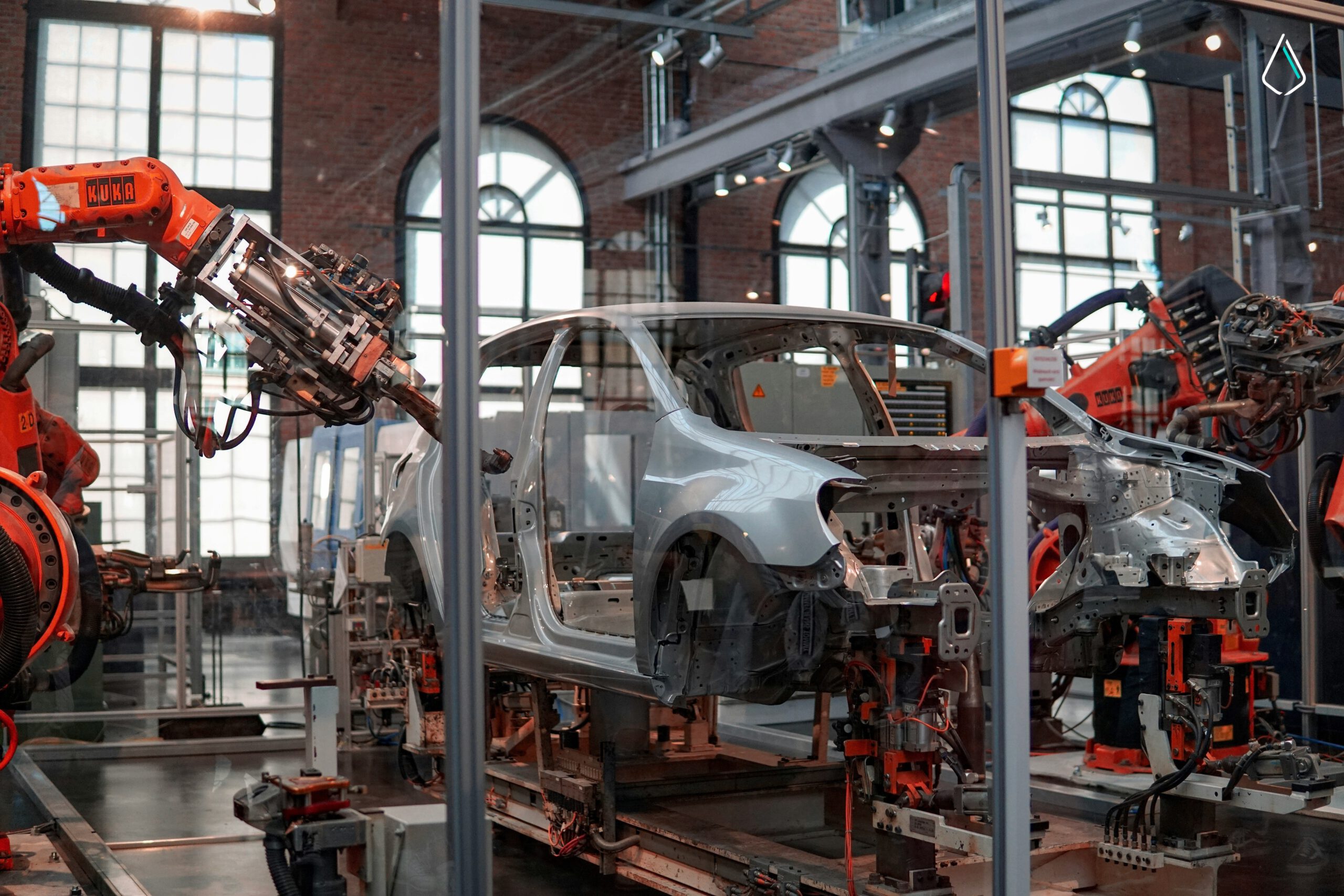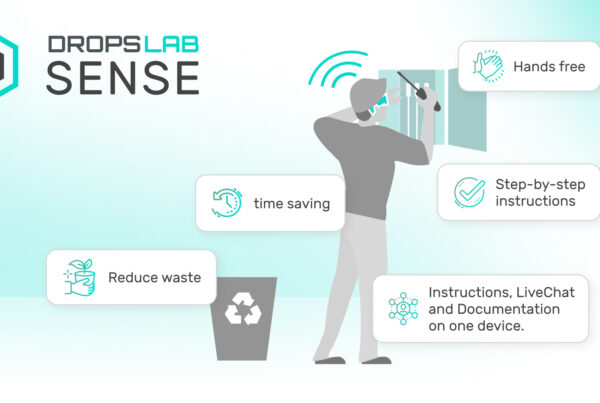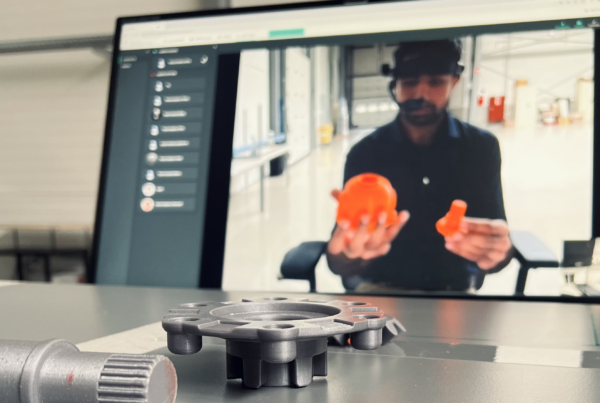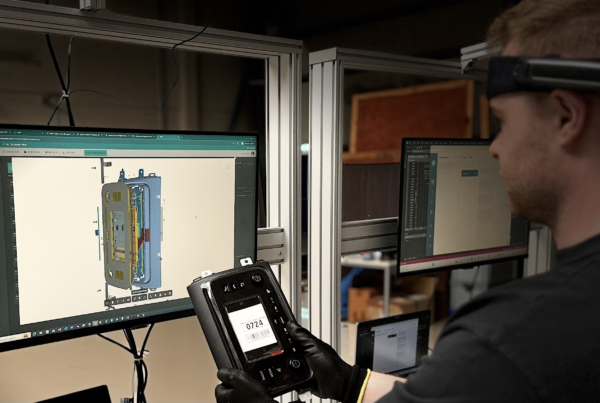Introduction
The increase in technological advancements and growing customer expectations for transparency, efficiency, and sustainability are impacting the automotive industry. Digital traceability and Manufacturing Execution Systems (MES) have become important tools in the modern manufacturing industries to allow real-time monitoring, process optimisation, and regulatory compliance. By adapting these state-of-the-art technologies, automotive manufacturers can transform their industry by improving operational efficiency, reducing waste and increasing overall product quality. Let’s learn more about how these data-driven solutions are playing a key role in shaping the future of the automotive industry.
The Evolving Landscape of the Automotive Industry
The automotive industry faces numerous challenges as it adapts to global trends and evolving demands. Managing complex supply chains is one such challenge, as vehicles comprise thousands of components sourced from suppliers across the globe, making effective oversight a daunting task. Additionally, ensuring that all components meet stringent quality and safety standards is essential to maintaining regulatory compliance, brand reputation, and customer trust. Sustainability is another pressing concern, with manufacturers striving to reduce carbon emissions and adopt ethical sourcing practices, which require robust systems to track environmental impact throughout production and supply chains.
At the same time, operational efficiency remains a top priority, as companies aim to reduce production times and costs while maintaining high quality in an increasingly competitive market. Furthermore, today’s consumers demand greater transparency, seeking detailed information about the origins, safety, and sustainability of the vehicles they purchase.
Boost Operational Effectiveness with These Tools
There are many companies that are offering a suite of tools and technologies that enable automotive companies to simplify operations and meet modern demands:
Advanced Blockchain Traceability
Blockchain technology plays an important role in ensuring transparency and creating tamper-proof records across the automotive supply chain. Different companies use blockchain to help manufacturers track crucial components such as airbags, engines, and EV batteries from raw material sourcing to final assembly. These traceability platforms ensure compliance with global safety and environmental standards while preventing counterfeit parts from infiltrating the supply chain, thereby safeguarding brand reputation and consumer safety. For instance, there are blockchain solutions that enable instant traceability for EV batteries, providing detailed insights into their lifecycle, from mining to recycling. This capability is crucial for meeting regulatory requirements and fostering consumer confidence.
Next-Generation MES for Automotive Production
Manufacturing Execution Systems (MES) offer real-time monitoring and management of automotive manufacturing processes by integrating with IoT devices and factory equipment, these systems improve production efficiency by identifying and resolving bottlenecks. They also support predictive maintenance to reduce equipment downtime and quickly adapt to changes in production schedules, ensuring consistent output even during disruptions. In an industry where precision and speed are essential, these MES solutions prove invaluable in achieving production targets while maintaining high-quality standards.
Sustainability-Driven Solutions
Sustainability is a key focus for industries these days, and automotive manufacturers want to meet their environmental goals. Sustainability-driven tools monitor energy consumption and waste production across facilities, track ethically sourced materials like cobalt and lithium for EV batteries, and generate detailed reports on carbon emissions to ensure environmental compliance. By embedding sustainability metrics into every stage of the supply chain, automotive companies can fulfil their commitments by reducing their environmental footprint and meeting consumer expectations for greener practices.
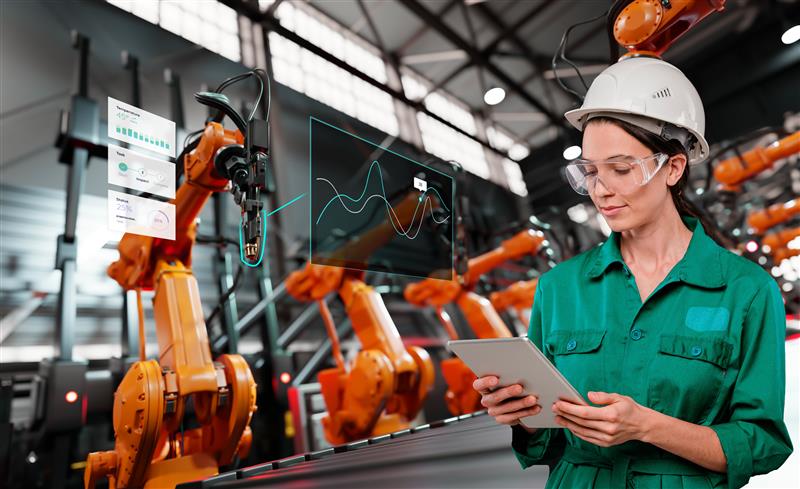
Consumer-Focused Transparency
Smart labelling solutions provide consumers with unparalleled access to information about the vehicles they purchase. By scanning a QR code, buyers can view details about the origin and production of individual components, sustainability certifications, and ethical sourcing practices. Additionally, these labels offer insights into the manufacturing process, enhancing trust and confidence in the brand. This level of transparency not only strengthens customer relationships but also sets manufacturers apart in an increasingly competitive market.
Data Analytics for Strategic Decision-Making
Robust data analytics tools that unlock valuable insights from extensive production and supply chain data can help optimize logistics and inventory management, identify emerging trends in consumer demand, and enable proactive measures to address quality or supply chain issues before they escalate. By using these insights, automotive companies can make strategic decisions to enhance efficiency, adapt to market trends, and maintain a competitive edge.
Role of Digital Traceability and MES in Automotive Manufacturing
There are many solutions already making a measurable impact in the automotive sector. Some of the key applications include:
- Electric Vehicle (EV) Supply Chain: The traceability of EV components, particularly batteries, is ensured to guarantee compliance with safety and ethical sourcing standards.
- Recall Prevention and Management: With blockchain-enabled traceability, manufacturers can quickly identify defective parts, minimizing the cost and reputational damage of recalls.
- Smart Factory Integration: MES systems facilitate smart factory operations, leveraging IoT devices and AI to optimize production processes.
- Supply Chain Resilience: Real-time visibility into supplier networks enables manufacturers to anticipate and mitigate disruptions, ensuring consistent operations.
Dropslab Technologies and the Future of Automotive Innovation
As the automotive industry continues to embrace digital transformation, many companies are ready to play an increasingly important role just like Dropslab Technologies. Their expertise in traceability, MES, and sustainability solutions aligns perfectly with the industry’s trajectory toward smarter, greener, and more consumer-centric operations.
Future areas of focus for Dropslab could include:
- Autonomous Vehicles: Ensuring the traceability and safety of critical components used in self-driving cars.
- Connected Vehicles: Harnessing data analytics to support the development of connected car ecosystems.
- Advanced Manufacturing: Integrating AI and robotics into MES platforms to enhance efficiency and quality.
By continuously innovating, Dropslab is not just addressing today’s challenges but also preparing automotive manufacturers for tomorrow’s opportunities.
Conclusion
As the automotive industry continues to grow, the inclusion of digital traceability, manufacturing execution systems (MES), and data-driven technologies is playing an imperative role in shaping its future. From improving supply chain transparency and optimizing production efficiency to meeting sustainability goals and improving consumer trust, these solutions are changing the way vehicles are manufactured and delivered. With advancements in blockchain, IoT, AI, and analytics, automotive manufacturers can better navigate challenges, drive innovation, and maintain a competitive edge in an increasingly complex market. By embracing these technologies, the industry is well-positioned to meet the demands of modern consumers while ensuring long-term growth and sustainability.
If you want to know more about the solutions that Dropslab provides you can book a demo with us and start your journey towards innovation, a new and advanced automotive industry.
FAQs
1. How does Dropslab Technologies help improve transparency in automotive manufacturing?
Dropslab’s blockchain platforms create tamper-proof records of every component and process in the supply chain, ensuring transparency and accountability.
2. What role do MES solutions play in automotive production?
MES solutions from Dropslab provide real-time visibility into manufacturing operations, enabling predictive maintenance, workflow optimization, and rapid adaptation to production changes.
4. Can Dropslab’s solutions support electric vehicle production?
Yes, Dropslab provides comprehensive traceability for EV components like batteries, ensuring safety, compliance, and ethical sourcing.
